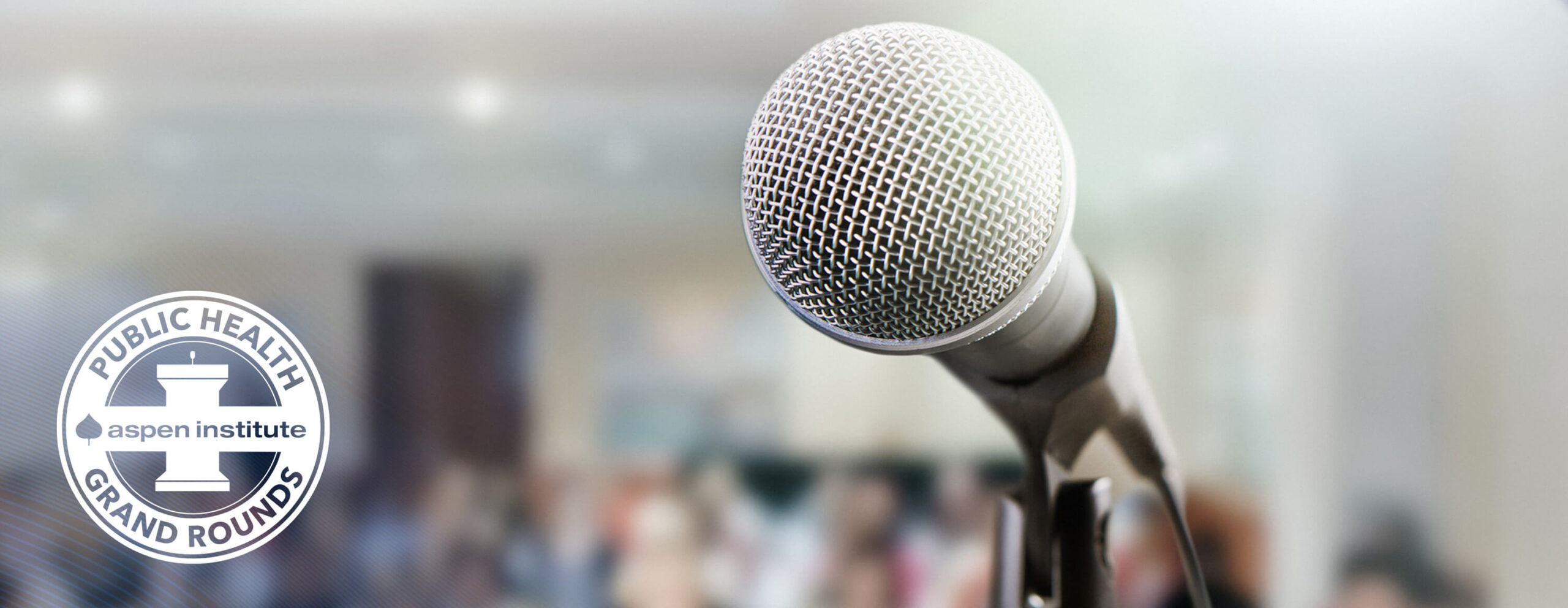
Public Health Grand Rounds at the Aspen Institute brings together leaders with the authority and expertise to influence the trajectory of global and domestic population health. Designed to engage influential thinkers and doers, inform policymakers, and promote discussion on the cutting-edge issues of the day, these periodic, hour-long sessions open with an expert presentation and allow ample time for audience/speaker Q&A and interaction.

